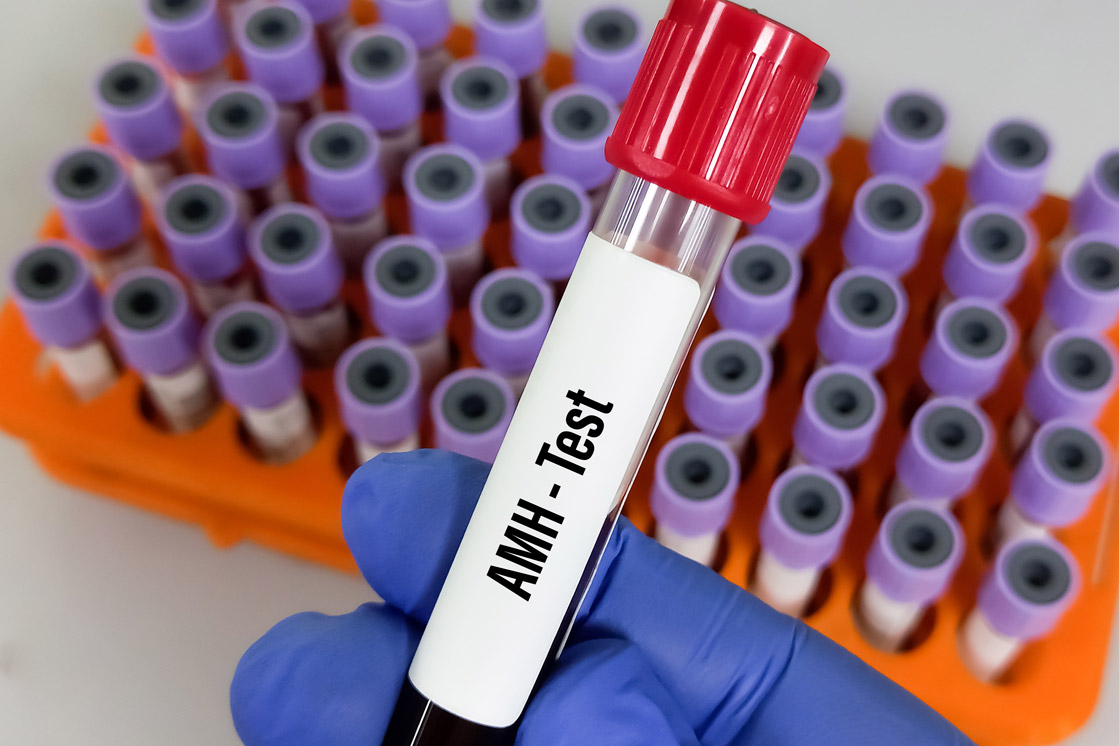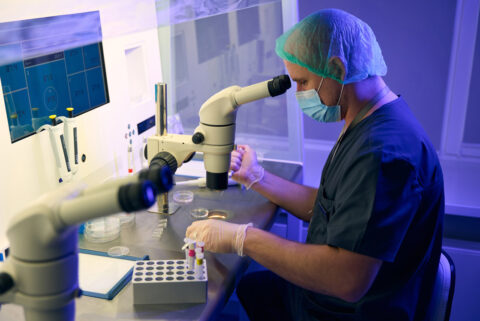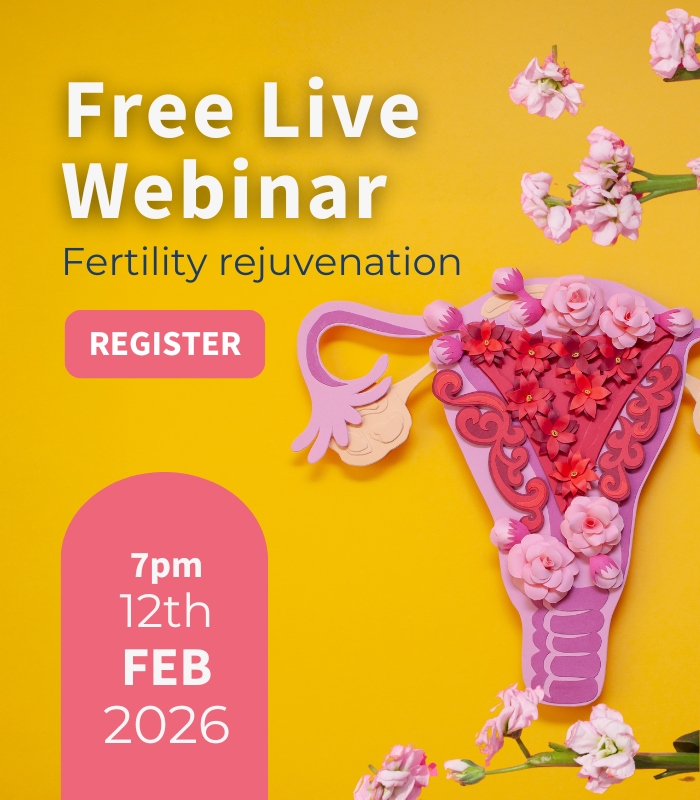If you are thinking about starting a family, whether that’s now or some time in the future, the question “when should I test my fertility?” may have crossed your mind.
Fertility testing refers to a group of medical tests which allow you to gain a better picture of your fertility, and help your fertility consultant advise on the next steps in your journey.
Around 1 in 7 couples in the UK have difficulty conceiving, which suggests that infertility is common. However, fertility issues do not necessarily mean that you’ll never be able to get pregnant – fertility testing can help get to the root cause and, if necessary, guide treatment to improve chances of conception.
Fertility tests aren’t just for those who are currently trying to conceive. As Dr Amin Gorgy, Fertility Consultant at The Fertility & Gynaecology Academy, explains, “Testing is an important, proactive step for anyone who wants to better understand their reproductive health. Whether you are looking to conceive soon, interested in freezing your eggs, have had issues with conception in the past, or you just want to know your position so that you can plan for the future, I recommend speaking with a consultant at your earliest convenience.”
Below, you will find a proactive guide to fertility testing timing according to factors that can affect your fertility, including age, the presence of underlying conditions such as PCOS, history of cancer treatment, and more.
When is the best time to do a fertility test?
The best time to do a fertility test is before you’re ready to conceive, particularly if you’re looking to plan ahead. By testing early, you can uncover potential problems sooner and make informed decisions about your reproductive options.
A fertility test for women can involve hormone tests, ultrasounds and other investigations depending on your needs. Male fertility testing can include semen analysis and various semen investigations, such as an aneuploidy test or DNA fragmentation test.
For women under 35:
If you’re under 35 and not trying to conceive right now, but may wish to in future, testing can help establish a baseline. This might include checking your Anti-Mullerian Hormone (AMH) levels, which provide an indication of ovarian reserve.
While your fertility is likely to still be in a healthy range at this age, early testing can offer peace of mind or flag any early concerns. This is especially important if you have a family history of early menopause or gynaecological conditions such as endometriosis or PCOS.
If you are currently trying to conceive, the general advice is to opt for testing after 12 months of trying. However, if you have any concerns, you should seek the advice of a fertility consultant sooner.
For women over 35:
Fertility begins to decline more noticeably after the age of 35, so if you’re in this age group and considering pregnancy – even in the next few years – testing is highly recommended.
You may be advised to undergo a broader range of tests, as egg quality and quantity decline more steeply with age. Testing can help you decide whether to try conceiving sooner, consider egg freezing or explore assisted reproductive techniques.
If you have already started trying to conceive, the recommendation is to try for at least six months before undergoing fertility testing. However, those with concerns should visit a fertility consultant sooner.
For women 40 and above:
Both the number and quality of eggs decline even faster when above the age of 40. If you are in this age group and did not conceive within 3 months of trying, according to the Centre for Disease Control in the USA, you need to seek medical advice. Some expert opinions advise that you might want to have a check even before you try to avoid wasting precious time if you are above 40.
With irregular periods:
Irregular or absent periods can be a sign that you’re not ovulating regularly, which can affect your ability to conceive. Conditions such as polycystic ovary syndrome (PCOS), low body weight, thyroid disorders or other hormonal imbalances are often behind irregular cycles.
If your periods are inconsistent, speak to a fertility consultant regardless of your age or current plans. Testing can determine whether you are ovulating and help identify any treatable causes.
After past trouble getting pregnant:
If you’ve previously tried to conceive for 12 months (or six months if you’re over 35 or even 3 months if you are over 40) without success, fertility testing is recommended, even if you’re not actively trying to get pregnant at the moment. This applies to both partners, and may include ovarian reserve testing, a transvaginal ultrasound, and semen analysis.
The immune system plays a key part in supporting a pregnancy, and so immune testing can help identify immune conditions that may be impacting conception. Immune testing analyses factors such as natural killer (NK) cell cytotoxicity, cytokine ratios, leukocyte antibodies, and more, particularly for women with history of recurrent miscarriage or repeated implantation failure or history of autoimmune disease.
Just because you’ve had trouble conceiving in the past, doesn’t mean you won’t get pregnant in future. However, understanding what happened can help shape your approach going forward.
While using medications that affect fertility:
Some medications, such as those used to manage autoimmune conditions or hormonal disorders, may affect fertility. If you are on long-term medication and plan to conceive in the future, ask your consultant whether fertility testing is advisable.
This allows time to explore options such as fertility preservation, if needed, or alternative treatments that may have a lower impact on reproductive health.
With a history of cancer treatment:
Cancer treatments such as chemotherapy and radiotherapy can affect ovarian function or sperm production, sometimes permanently. If you have undergone cancer treatment, even in the past, fertility testing is crucial, whether or not you have previously experienced fertility problems. If you are about to start cancer treatment, it is strongly recommended to have fertility preservation before you start the chemo or radiotherapy. This can be in the form of egg or embryo freezing or ovarian tissue freezing. Men can freeze a number of sperm samples before going through cancer treatment.
Your consultant may recommend hormone testing, ovarian reserve checks or sperm analysis, depending on your medical history and treatment type.
Following an STI diagnosis:
Certain Sexually Transmitted Infections (STIs) such as chlamydia or gonorrhoea can lead to complications that affect fertility, for example, pelvic inflammatory disease (PID) in women, or scarring in the reproductive tract.
Question: “If I’ve had a previous STI, when should I test my fertility?”
If you have had an STI in the past, particularly one that went untreated for some time, it’s sensible to have your fertility assessed to ensure there has been no lasting impact.
Other factors:
Other circumstances where early fertility testing may be beneficial include:
- A family history of fertility issues or early menopause
- Diagnosed gynaecological conditions (for example, endometriosis)
- Lifestyle factors such as smoking obesity or high stress
- Wanting to understand more about your reproductive health proactively
When to seek medical advice
If you are unsure about when you should try fertility testing, or if it’s necessary at all for you, the best step is to speak with a fertility consultant. They can help you decide whether testing is right for you based on your medical history, age and future plans, and guide you through the most appropriate options.
At The Fertility & Gynaecology Academy, our expert consultants offer fertility assessments in a supportive and discreet environment. Whatever your plans for conception, we are here to help you make informed decisions about your fertility journey.
To find out more, call The Fertility & Gynaecology Academy now on 020 7224 1880 or email info@fertility-academy.co.uk.









